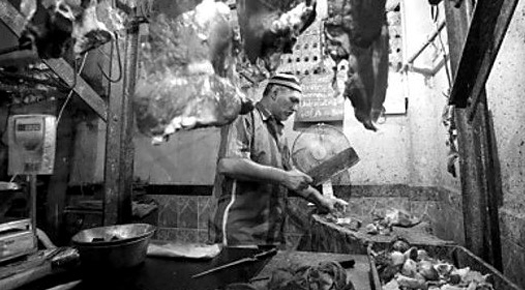
The high court in Jammu and Kashmir asked the state government on September 16 to respond to a writ petition that challenges the constitutional provisions, which criminalize beef sale and bovine slaughter in the former kingdom. The writ petition, filed by retired law professor Afzal Qadri, through his lawyer Faisal Qadri, challenges the validity of Sections 298 A and 298 B that regulate the ban of beef sale and bovine slaughter in the Indian state.
“The court admitted the petition and gave a week’s time to the government to file its response,” Faisal Qadri said.
Qadri also said the court ruled that the writ petition would not be a hindrance in case the state legislature sought to amend or repeal the above-mentioned provisions as they have been challenged on grounds of being ultra vires to Sections 14, 21, 25 and 29 of the Constitution of Jammu and Kashmir as well as the Constitution of India. In his writ petition, Qadri pointed out that the above-mentioned provisions directly interfere with the personal liberty of the petitioner just as much as they intrude the religious and private spaces of citizens.
Last week, the high court ordered the Director General of Police to strictly enforce the ban on beef sale and bovine slaughter in Jammu and Kashmir after a division bench, comprising of Justice Janak Raj Kotwal and Justice Dhiraj Singh Thakur, presided over a public interest litigation to conclude that, “the Divisional Commissioner, Kashmir, has not filed an appropriate response regarding the smuggling and slaughtering of bovine animals and subsequently their sale in Kashmir Valley.”
The sale of beef and slaughter of bovines has been banned in Jammu and Kashmir since before India’s partition when the then princely state used to be ruled by Dogra rulers. While the ban was strictly enforced in all parts of the state under Dogra rule, it was relaxed significantly once elected governments took over. Today, the sale of beef and slaughter of bovines continues to be banned in Hindu-majority Jammu though the meat is sold at many places in Muslim-majority Kashmir. After a group of separatist leaders urged citizens to slaughter bovines on Eid ul Adha, which is to begin on September 25, the state’s opposition party asked the current government to introduce an ordinance before the festival commences that would help amend the existing Ranbir Panel Code and thereby repeal the provisions under which beef sale and bovine slaughter happen to be banned.
Senior politician and former finance minister of Jammu and Kashmir, Abdul Rahim Rather, told the media that the situation in the state is explosive and the government cannot afford to wait for the assembly session to amend the law.
“Ordinances are meant for urgencies, it is the need of the hour to bring an ordinance to repeal the provision in the Ranbir Panel Code (RPC) under which cow slaughter has been banned,” he said.
Critics have said that the court order banning beef sale and bovine slaughter in the state not only interferes in the culinary and religious practices of its citizens, but if implemented, it could affect the livelihoods of approximately three lakh people by rendering them jobless. Leaders of a butchers association in the valley confirmed with the media that lakhs and lakhs of people were directly involved in beef sale and bovine slaughter in Kashmir and all of them would be rendered jobless if the state government goes on to implement the high court order.
“There are thousands of people in every district who are associated with this business. Not only butchers are earning out of beef their livelihood, but there are other thousands of businessmen running restaurants, barbeque shops and kiosks,” Irfan Rego, general secretary of All Kashmir Butchers Union (AKBU), said.
He also said that if the ban was to be implemented, the state government should first look into the rehabilitation of all these people who would be affected by the new change.
“More than three lakh people are earning from beef business in valley. They will be jobless if ban on bovine slaughter is implemented here,” he said.
Labeling the ban as an anti-Muslim collusion, Rego said the high court order has been aimed at weakening the economy of Muslims in the state.
Mehraj-uddin Ganai, vice president of Mutton Dealers Union, said that there are thousands of people in Jammu and Kashmir who earn the living from the sale of bovine hides as well.
“Hundreds of people in every city and town make their both ends meet on beef business. If ban is implemented it will only raise unemployment in the state,” he said.
Ganai said that he does not understand the sudden need for the reinforcement of a ban that has already been in place but never been implemented with such vigor.
“As compared to urban areas, the consumption of beef is high in rural areas of valley. We can find at least a butcher shop selling beef in every village here,” Ganai added.
Following the high court order banning beef sale and bovine slaughter last week, massive protests were staged across the valley. As a mark of rebellion, many Muslims went on to slaughter dozens of bovine at various places across Kashmir.
Photo Credits: Brittishpathram.com
